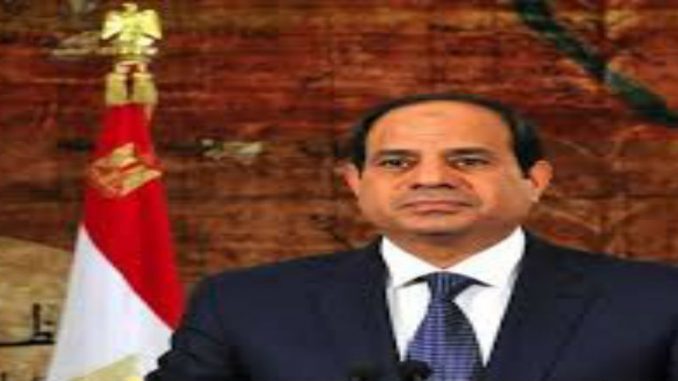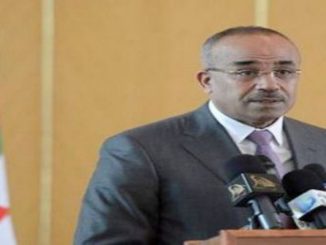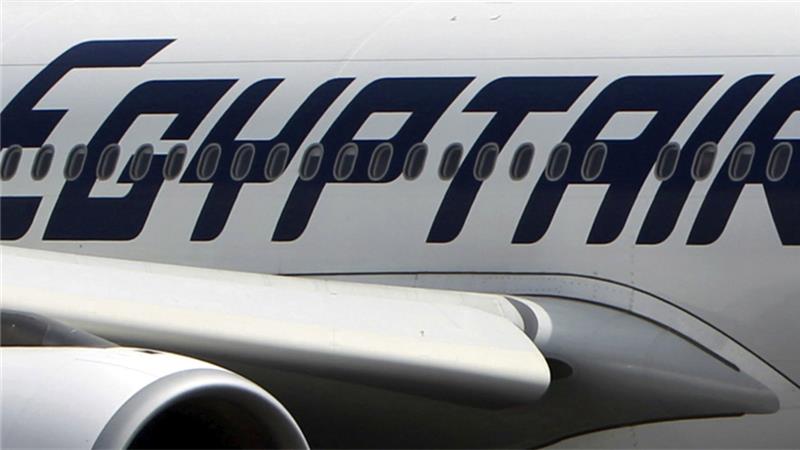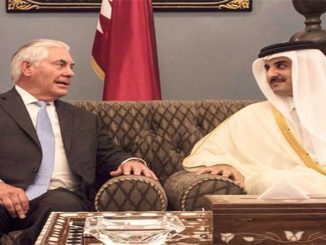
Hoover institution, described as conservative think tank, has released a report titled: “US-Egypt Strategic Relations from Obama to Trump: What Went Wrong and What Might Be Possible?” which evaluates the US-Egyptian relations during Obama administration and calls the current administration to bolster US relation with the Egyptian regime.
After the terrorism-focused anxiety of the George W. Bush years, President Barack Obama scheduled visits in June 2009 to Cairo and Riyadh. The leaders of those countries thought at that time that the fresh face in the White House was keen to rebuild America’s traditional partnerships in the Middle East.
But the seminal speech that President Obama delivered in Cairo faded away those hopes. Obama, who delivered a speech at Cairo University, said not a single word toward Egypt’s President Hosni Mubarak (who was later overthrown by January Revolution 2011), not a word of thanks for his hospitality, not a word of gratitude for Egypt’s quarter-century fulfillment of peace with Israel, not a word of appreciation for the 36,000-man Egyptian force sent to assist America in the war to liberate Kuwait 18 years earlier.
Obama led a new tack for an American president. Since Richard Nixon, US Presidents had embraced strategic partnerships with Egypt’s military-backed leaders, a policy which helped stabilize the eastern Mediterranean under a U.S.-led umbrella of peace and security, according to Hover institute.
Whether he knew it or not, Obama’s “new beginning” that scaled back Bush-era democracy-promotion efforts to avoid the charge of endorsing a strategy of regime change, “to the always-paranoid political leadership in Cairo he seemed to lend America’s stamp of approval to the Islamist project that, for decades, offered itself -sometimes violently, sometimes not -as the alternative to the military-led nationalists,”according to the report.
Still, in considering the various factors that led to the demise of America’s longest serving Arab ally, Hoover report stated that “Obama’s role in kicking down the strategic pillars under girding the U.S.-Egypt partnership and offering instead a religion-focused vision for U.S. engagement with the world should not be overlooked,” adding that,”to a certain extent, the fact that America was willing to see chaos and instability in Egypt as an acceptable step on the road to what it viewed as a more just political future reflected Egypt’s diminished role in Obama administration strategy toward the broader Middle East.”
Fore instance, when the Palestinian-Israeli peace process was dominated by Washington’s row with Jerusalem over settlement construction – a clash which allowed for a paltry two weeks of direct negotiations over the entire eight years of President Obama’s two terms –” there was little room for Egypt’s traditional role as a bridge between Arabs and Israel.”
In Syria, when Obama opted to refrain from employing any American power to advance U.S. interests in Syria, “there was little room there for Egypt’s traditional role as Arab legitimizer of American force-projection in the region,”according to Hoover Institution.
In the Libyan crisis, when the White House was tired from even its limited policy of “leading from behind” in Libya, “there was little room for U.S. policy to acknowledge Egyptian equities in the pivotal country to its west.”
“The Administration was focused on an Iran nuclear deal whose “benefits” included a regional re balancing between Tehran and the region’s Sunni Arab states, envisioning a process in which – in the President’s words — they would “share” power and influence, there was little room to prioritize the interests of Washington’s most significant Arab military partner.”
According to Hoover’s report this led to a decay of the U.S.-Egypt strategic partnership that was clearly symbolized by the freeze placed on much of America’s military aid to Egypt in October 2013, about three months from Abdel Fattah al-Sisi’s military coup against Egypt’s first democratically elected President Mohamed Morsi .
However, Obama administration lifted the military aid suspension and the flow of high-profile sophisticated weapons resumed in late March 2015. But that decision was accompanied by new conditions as to the financing and content of weapons purchases and it came painfully slowly, almost a year after Abdel Fattah el-Sisi, the leader of the 2013 military coup, won election in the country’s May 2014 presidential vote.
It is worth to mention that Obama and al-Sisi only met on the sidelines of the UN General Assembly, but Al-Sisi never visited Washington while Obama was in the White House.
On the other hand, the report said that “Egyptian leaders of the post-Muslim Brotherhood era bear their share of responsibility for the decline in the relationship with Washington”as they circulate anti-American conspiracy theories, direct military aid toward pet projects that often have no connection to the real threats and challenges facing the country, and are shockingly and brutally heavy-handed against critics of all varieties, Islamist and non-Islamist alike.
“Despite this, on regional political issues, they often displayed surprising good sense – showing real backbone in withstanding Saudi blackmail to dispatch troops to join the Yemen quagmire, taking firm measures to end the subterranean flow of weapons to Gaza and building an unprecedented partnership with Israel against common enemies,|”said the report.
But in the end, the American Think tank believes that in the end,”without donning blinders to the eccentricities and outrages one can find in Cairo without looking too hard, an administration with a different set of priorities might have found a way to take advantage of the real opportunities presented by a Sisi-led Egypt.”
It also added that sort of cooperation without illusions – on Libya, Sinai, and Arab-Israeli peace, for example – is what “the Trump administration may find on offer with Egypt today. ”
Also, the report said that Washington should provide Egypt’s military leaders “the political embrace that Obama was always reluctant to offer, but also requests from Egyptians that it would compensate them in the currency that matters most – U.S. regional leadership that would lead to a resumption of Saudi and other Gulf assistance to help Cairo weather crushing economic problems.”
***
In fact, there have been already signs of a strong alliance between US new administration and al-Sisi regime that have been tracked since Trump campaign in the US elections.
First of all, Al-Sisi was one of a few world leaders Trump requested to meet when he was a candidate on the sidelines of the UN General Assembly in September.
Moreover, Trump also expressed to al-Sisi “his strong support for Egypt’s war on terrorism, and how under a Trump administration, the United States of America will be a loyal friend, not simply an ally, that Egypt can count on in the days and years ahead, according to Politico.
Trump also said that if elected president, he will work with Sisi to fight terrorism, describing him in a speech as someone who recognizes that “this ideology of death must be extinguished.”
After the meeting, Trump’s team released an account of his meeting with Sisi that was striking in how much praise the Republican heaped on Egypt.
On the other side, when al-Sisi was asked directly about his opinion on the US elections – during an interview with the CNN after meeting with Trump – and the possibility that Trump would make a strong leader, al-Sisi replied by saying “no doubt”.
Moreover, al-Sisi was among the first World Leader to congratulate Trump to congratulate him on his victory.
In the same context, Sameh Shoukry was the first Arab official to meet US elect official in the new administration which infers how warm will be the relation between both countries.
According to many observers, it seems that Donald Trump administration will take steps in favor of the al-Sisi regime as” the both leaders have many views in common.”
It is known that Trump opposes the attempts of change in the region known as “The Arab Spring”, tends to support stability, and is against any radical changes in the region.
In addition, Trump views the war on terrorism as a top priority for US foreign policy.
During his inauguration on the National Mall in Washington DC as the 45th President of America, Trump declared an immediate policy to unite civilized world “to defeat and destroy ‘terrorism’, which we will eradicate completely from the face of the Earth”.
According to a statement posted on the White House website moments after his inauguration, Trump administration said it would make defeating “radical Islamic terror groups” its top foreign policy goal.
In the statement titled, “America First Foreign Policy”, the Trump administration said, “Defeating ISIS and other radical Islamic terror groups will be our highest priority.”
The new American administration said that in order to “defeat and destroy” ISIS and similar groups, we “will pursue aggressive joint and coalition military operations when necessary”, work to cut off funding for armed groups, expand intelligence sharing, and use “cyber-warfare” to disrupt propaganda and recruitment efforts.



